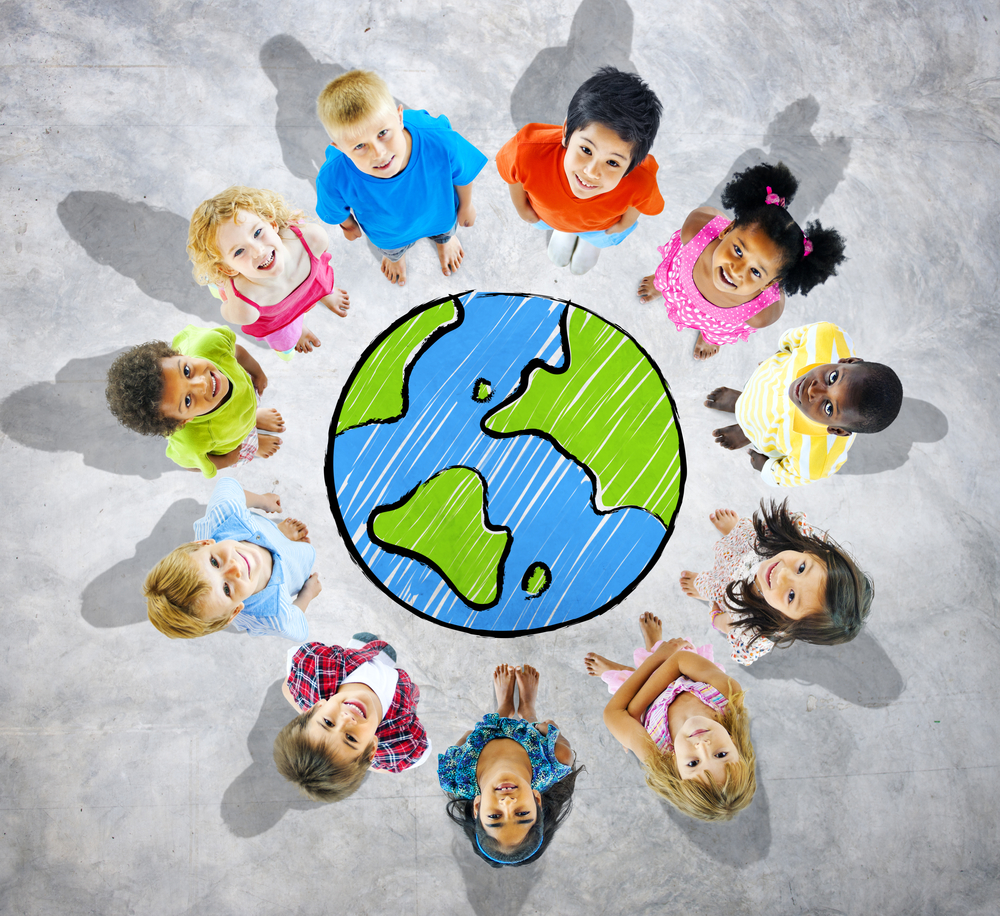Planning and building a multicultural service
Published on Tuesday, 26 June 2018
Last updated on Monday, 27 January 2020

Early childhood services have an important role in helping children establish a healthy sense of their own cultural identify, as well as encouraging acceptance, understanding and tolerance between children and families from diverse cultural backgrounds.
KidsMatter offers a range of strategies for educators seeking to support the health and wellbeing of children from culturally diverse backgrounds.
Get to know families at your service
Every family is different. Getting to know all of the families at your service means there is less chance of assumptions being made about backgrounds, cultures or practices. Asking families about their lives and culture is the best way to get to know them and what is important to them. When educators understand the experiences of families and their cultures, they are better able to support children with their development and learning.
Be open to different types of families
Families from culturally diverse backgrounds can also be unique in their composition. Families can be small or large, may or may not be biologically related and may include several generations. When educators are able to include all families, it helps families to feel more welcome.
Work to develop positive relationships with families
Relationships help people understand each other and work together. Coming to an early childhood service might be a new experience for some families, so developing positive relationships can help build a sense of belonging, inclusion and foster children’s social wellbeing. A positive relationship with a service also means a family is likely to be more comfortable about approaching educators. Families are an important source of information and insight about their children and the hopes or concerns they might hold for them. Educators can ask families what is important to them and invite them to participate in the service. An orientation session can assist new families develop positive relationships with their child care service.
Be thoughtful about communication
When spoken or written English is a barrier, interpreters or translated material can help educators and families communicate with one another. When working face to face with interpreters, always remember to talk to the family, not to the interpreter. Ask questions to ensure families understand what has been said. It can be helpful to provide additional time to listen to families and allow them to ask questions too. Respect for diversity is also communicated by the environment and resources at an early childhood service so, it is helpful to be mindful of the messages your environment sends about diversity.
Mutual respect for diversity
Educators can encourage a positive environment by inviting diversity into the service. For example, providing a range of opportunities for children and their families to share their personal stories creates an atmosphere of cultural respect and acknowledgement of diversity. Mutual respect across cultures involves being open to different ideas and approaches and appreciating the enrichment this provides. When educators are aware of cultural differences in parenting, sensitive to the issues faced by families and conscious of power differences, this supports good relationships with families.
When early childhood educators respect the diversity of families and communities, and the aspirations they hold for children, they are able to foster children’s motivation to learn and reinforce their sense of themselves as competent learners.
Create community connections
Being safe and feeling safe can take time to achieve. Some families may have experienced significant trauma and disruption in the process of moving to or settling in Australia. These experiences can have ongoing effects. It can be helpful for families to have opportunities to talk about their experiences and to receive sensitive support when required. Families are better able to support their children when they are informed about and are connected to their community (e.g., support services and social networks). Specialist services are available in different states to provide assistance to families from culturally diverse backgrounds.
Create community connections
Race-based discrimination is any behaviour(s) or practice(s) that result in avoidable and unfair disadvantage for minority racial/ethnic/cultural groups and privilege majority groups. It can occur at both individual and organisational levels. Racism can be countered by promoting positive attitudes and practices regarding diversity among individuals and organisations. This includes identifying and challenging the kinds of practices that disadvantage or discriminate against those of different racial or cultural backgrounds and promoting inclusive practices in their place.
Steps educators and early childhood services can take to support families who have experienced racism include:
- engaging in thoughtful conversations
- demonstrating empathy and support
- challenging prejudices, stereotypes and discriminatory behaviour
- reviewing policies and practices to promote inclusion
- increasing knowledge of accurate information to counter or dispel false beliefs regarding minority groups
- providing information about support services
Diversity and inclusion experts Inclusive Directions have created a checklist on planning for a multicultural child care environment, which you can access here.
Download a PDF of the KidsMatter publication, Cultural Diversity Suggestions for families and educators, here.
References:
Belonging, Being and Becoming: The Early Years Learning Framework for Australia, Department of Education, Employment and Workplace Relations
Related Articles

How to celebrate indigenous languages in your centre
How languages link us to our individual identity, traditional culture, memory and the importance of Indigenous languages in your service.

The anti-bias approach in early childhood education
Anti-bias education is an approach designed to increase understanding of differences and their value to a respectful and civil society, and to actively challenge bias, stereotyping and discrimination.

Celebrating diverse families
Celebrating the diversity of family structurs among children in early childhood services.

